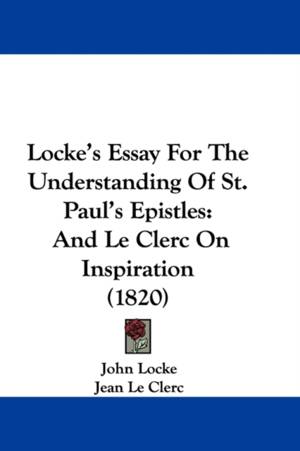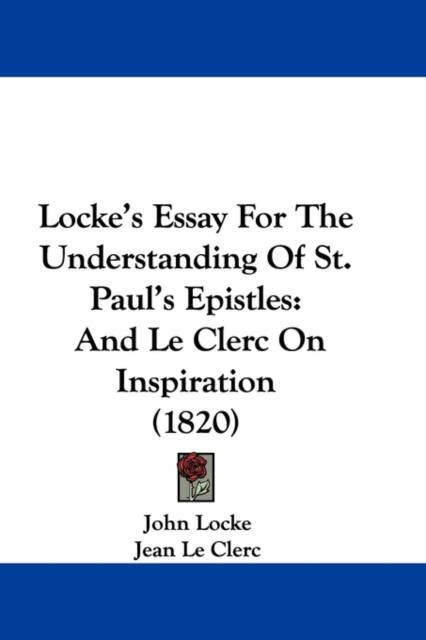
- Afhalen na 1 uur in een winkel met voorraad
- Gratis thuislevering in België vanaf € 30
- Ruim aanbod met 7 miljoen producten
- Afhalen na 1 uur in een winkel met voorraad
- Gratis thuislevering in België vanaf € 30
- Ruim aanbod met 7 miljoen producten
Zoeken
Locke's Essay For The Understanding Of St. Paul's Epistles
And Le Clerc On Inspiration (1820)
John Locke, Jean Le Clerc
Paperback | Engels
€ 31,45
+ 62 punten
Uitvoering
Omschrijving
Locke's Essay For The Understanding Of St. Paul's Epistles: And Le Clerc On Inspiration (1820) is a book that explores the writings of St. Paul and the concept of inspiration in Christianity. The book is written by John Locke, a prominent philosopher and theologian of the 17th century. In this book, Locke provides a detailed analysis of St. Paul's Epistles, which are considered to be some of the most important texts in the New Testament. He examines the language, context, and historical background of these texts in order to gain a deeper understanding of their meaning and significance.In addition to his analysis of St. Paul's Epistles, Locke also discusses the concept of inspiration in Christianity. He examines the different theories of inspiration that have been proposed over the centuries, and he offers his own perspective on the subject. Locke argues that inspiration is not a supernatural phenomenon, but rather a natural process that occurs when individuals are moved by the Holy Spirit to write or speak about God.The book also includes a translation of a work by Jean Le Clerc, a French theologian who wrote extensively on the subject of inspiration. Le Clerc's work provides a valuable perspective on the topic, and it helps to contextualize Locke's own views.Overall, Locke's Essay For The Understanding Of St. Paul's Epistles: And Le Clerc On Inspiration (1820) is a thoughtful and insightful exploration of two important topics in Christian theology. It is a valuable resource for scholars and students of religion, philosophy, and history.This scarce antiquarian book is a facsimile reprint of the old original and may contain some imperfections such as library marks and notations. Because we believe this work is culturally important, we have made it available as part of our commitment for protecting, preserving, and promoting the world's literature in affordable, high quality, modern editions, that are true to their original work.
Specificaties
Betrokkenen
- Auteur(s):
- Uitgeverij:
Inhoud
- Aantal bladzijden:
- 132
- Taal:
- Engels
Eigenschappen
- Productcode (EAN):
- 9781104244903
- Verschijningsdatum:
- 2/04/2009
- Uitvoering:
- Paperback
- Formaat:
- Trade paperback (VS)
- Afmetingen:
- 152 mm x 229 mm
- Gewicht:
- 185 g

Alleen bij Standaard Boekhandel
+ 62 punten op je klantenkaart van Standaard Boekhandel
Beoordelingen
We publiceren alleen reviews die voldoen aan de voorwaarden voor reviews. Bekijk onze voorwaarden voor reviews.











